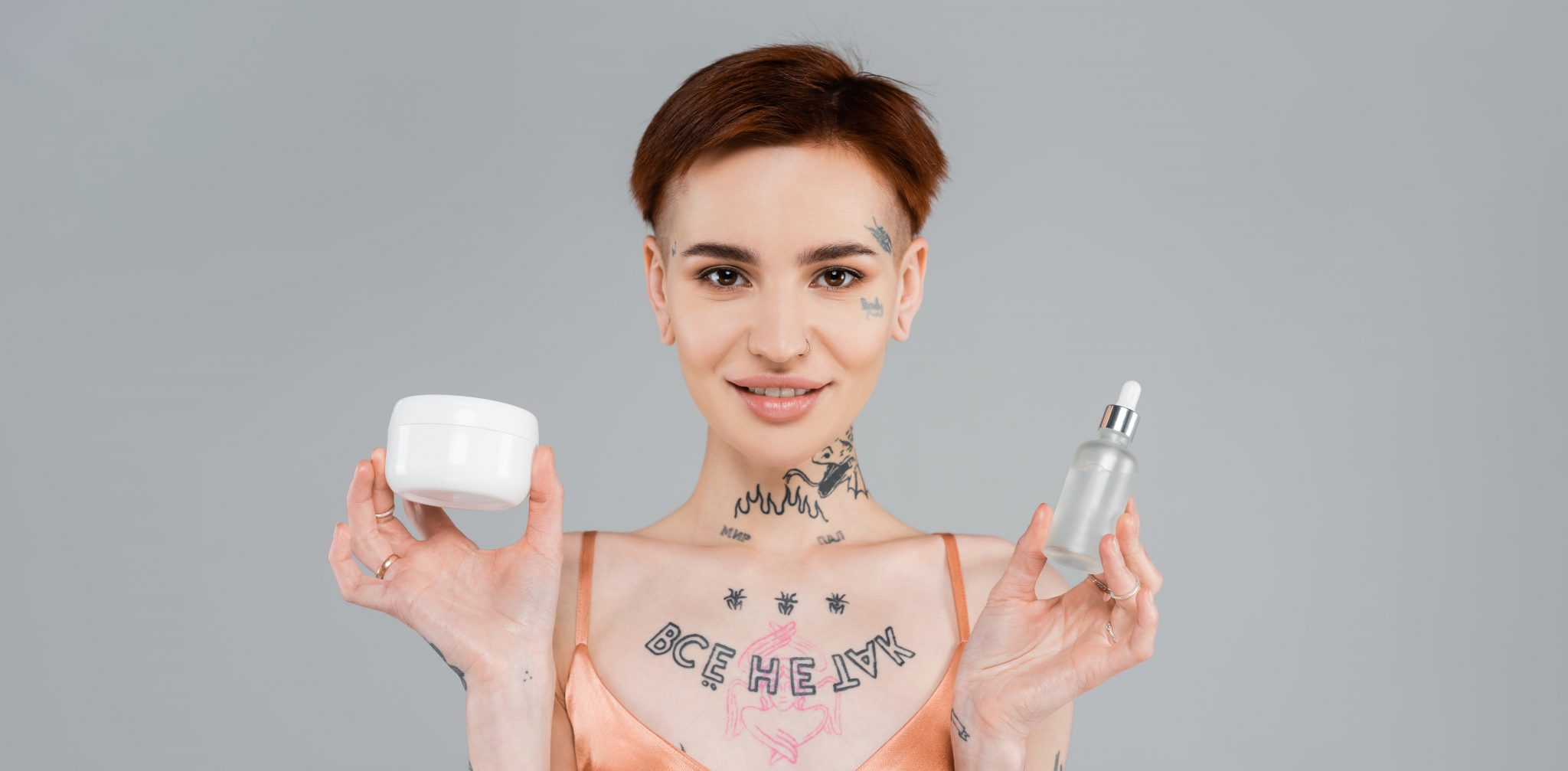Aloe vera and vitamin C serum both provide tremendous skin advantages, such as boosting collagen, removing scars, and fighting inflammation. In general, aloe vera and vitamin C serum provide similar skin benefits.
However, they differ significantly in terms of chemical makeup, efficacy, and other factors. So, in this article, we’ll compare aloe vera to vitamin C serum.
The main difference between vitamin c serum and aloe vera gel is that vitamin c serum is a concentrated supply of vitamin C, which, in its pure(L-ascorbic acid) or derived form (magnesium ascorbyl palmitate and sodium ascorbyl phosphate), has more vitamins, minerals, and antiseptics that help to alleviate and cure the skin.
Aloe vera, on the other hand, is extremely hydrating and gives nutrition support, scar fading, and other benefits.
We now go a step further and examine the effects of aloe vera and vitamin C serum independently.
Table of Contents
Benefits of Aloe Vera
Aloe Vera gel is a preparation of leaf pulp from the plant Aloe vera’s parenchymal tissue (Liliaceae). Aloe vera gel includes carbohydrate polymers such glucomannans and pectic acid, as well as vitamins and vital amino acids and other organic and inorganic substances.
- Aloe Vera contains eight enzymes (amylase and liaise, for example) that delicately exfoliate the skin, giving it a cleaner and brighter appearance. It includes antioxidants such as vitamins A, C, and E, which aid in the treatment of acne, skin rejuvenation, and inflammation.
- Aloe Vera gel is high in vitamin C and E, as well as beta-carotene. As a result, it contains anti-aging benefits.
- It stimulates fibroblasts, which are the cells responsible for the production of collagen and elastin, hence assisting in the maintenance of skin firmness and suppleness.
- It reduces wrinkles by increasing collagen production and has been demonstrated to improve wound closure and also cools rashes and sunburns.
- Aloe Vera gel stimulates new hair growth by increasing blood circulation to the scalp. It also contains important minerals and vitamins. Proteolytic enzymes found in aloe vera aid in the regeneration of dead skin on the scalp.
- It is a natural supplier of amino acids, which keep the skin smooth and soothes sensitive skin.
- Aloe Vera is a rich reservoir for lupeol and cinnamic acid, both of which are natural antiseptics that contribute to the removal of microorganisms. It also contains long chains of sugar molecules known as mucopolysaccharides, which aid in the retention of water in the skin.
- It also includes zinc, which works as an astringent and helps to tighten pores and is a natural source of salicylic acid, an antioxidant believed to aid with acne.
- It is a succulent plant that stores water in the form of a gel on its leaves. This gel is incredibly moisturising and is good for sunburns, bug bites, minor wounds, and bruises.
Benefits of Vitamin C serum
- Vitamin C is a powerful antioxidant that can aid in the fight against free radicals. When Vitamin C serum is applied topically to the skin, it helps to reduce free radical inflammation.
- It aids in skin hydration as long as the serum contains moisturising components such as hyaluronic acid.
- They are suitable for all skin types and are preferable than Vitamin C toners or lotions since they penetrate deeply into the skin. It is simple to use, requiring only one to two drops every day. Lightweight and excellent for layering underneath other items.
- It also helps to smooth out fine lines and wrinkles.
- One of vitamin C serum’s most well-known effects is its ability to brighten the skin. UV radiation and pollution are known to cause skin damage by making it appear dull, fatigued, and lifeless. Vitamin C works as a brightening agent, giving it a more even and bright complexion with a natural glow from within.
- It contributes in the reduction of redness and the evening out of skin tone. This means it calms the skin and relieves puffiness, allowing the face to shine throughout.
- Strongly recommended for fading dark spots and hyperpigmentation. Vitamin C blocks the route of aberrant skin pigmentation (melanin) production to balance out skin tone and lightens dark spots, sun spots, acne scars, pimples, and hyperpigmentation caused by melasma.
- It decreases the impression of under-eye circles. By plumping and moisturising the under-eye region, vitamin C serums can help balance out fine wrinkles.
- Reduces acne scarring and prevents the skin against oxidative stress.
- Supports collagen formation, which promotes skin regeneration. Furthermore improves inflammatory skin problems such as acne.
Here is video about Vitamin C serum and Aloe Vera
Conclusion
Aloe vera is a well-known vitamin-rich plant with skin-healing capabilities. For many skin problems, such as eczema, rosacea, or small cuts, aloe vera is safe to apply on the face. One may get the gel straight from an aloe vera home plant or buy it ready-made.
Vitamin C may assist in the healing of blemishes, the reduction of hyperpigmentation, and the creation of an out-of-this-world glow on the skin. Consistency is essential for best benefit, so include it into daily skin care routine in a way that makes sense for oneself. Some users just do it in the morning to benefit from its UV-protectant benefits, while others prefer it as a night serum.
